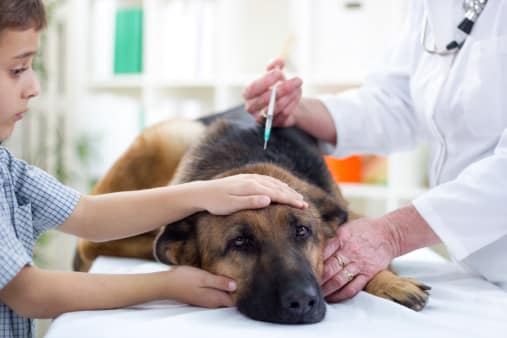If you are a dog owner you have been told time and time again you must get your dog vaccinated to prevent disease. The question of many dog owners is how do vaccines work to prevent disease from affecting my dog? The reason the act of vaccination is contemplated upon is because a vaccine is actually a strand of the disease. A vaccine uses a modified or dead version of the virus causing disease to allow the immunity to have a natural reaction.
Once the immune system is triggered by the vaccination, the dog’s body begins producing specialty anti-body cells to fight the virus. Once antibodies have been made against the disease, the body will always have them and his body will be ready when the dog is attacked by the real virus.
A dog’s immunity is actually passed to him at the time of birth. After the puppy is born, he begins nursing right away on a milk product known as colostrum. Colostrum is thicker than regular milk and is loaded with immune supporting antibodies. The unique passive of immunity from mother to offspring is known as passive immunity. Although the mother dog may provide the pup with tons of antibody fighting cells, there are some antibodies that may not have been transferred. This is where vaccinations come in, to protect your dog completely.
People have given dog vaccines a bad name due to side effects the vaccine may or may not cause to the dog. Dog owners are easily misguided and should remember that a vaccine is a safe version of a virus. Any virus, vaccine or active, will cause the dogs body to shakeup a little. Think about the last time you had a flu shot.
You may have felt a little nauseous, feverish or sleepy after being administered the shot because the flu shot is a modified version of the influenza virus. As humans, we follow up on our vaccines because we know they will do us good in the long run, and our dogs should be no different. It should be noted that some dogs are allergic to some vaccines which is an exception to the previous statement.
Source: Dasher & Rikku
